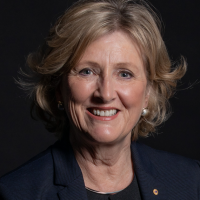Articles / The Hero’s Journey: Making peace with our inner narrative


writer
General Practitioner; Author; Past Chairman, RACGP; Past Deputy Chancellor, Monash University
Retelling our stories can help us make peace with our inner narratives after negative experiences. Whether we are challenged by a pandemic or any traumatic event, it can help to try to embrace our human emotions rather than trying to avoid them – our justified emptiness, sadness, anger, fear, or despair.
One way to re-examine our internal stories through a new lens is to consider the common themes underpinning the ‘hero’s journey’. Although many GPs dismissed the ‘health worker hero’ label during the pandemic, it is worth remembering Joseph Campbell’s timeless messages about true heroism in his book ‘The Hero with a Thousand Faces’, first published in 1949.
To summarise, Campbell’s reluctant hero is presented with a call to action, which they initially refuse because they consider themselves incapable of the task or fear going outside their comfort zone. When a mentor encourages or inspires the unassuming protagonist to step up and face a risk or threat, major obstacles stall any progress. The potential hero initially fails a few tests and is forced to confront the real reason for their journey, which is to overcome inner doubts or human flaws. The hero’s tumultuous journey builds character and provides insight into a unique purpose or skill in preparation for an even greater future challenge. By persevering, the hero is personally transformed, thereby achieving their big goal. However, this only occurs after a period of inner turmoil, after which the hero finds inner peace by recognising the value of choosing a difficult path to not only make a difference to others, but to grow personally. They reluctantly return to their ordinary world and eventually successfully achieve a balance between who they were before their journey and who they are now.
Regrettably, many hero’s journeys in general practice are yet untold. While there may be poor external acknowledgement of what GPs and other health practitioners have contributed in recent times, we can re-write our personal stories of hope and heroism to find inner peace and internal validation.
Here are some questions to help you challenge your inner narrative after facing adversity, negative experiences or trauma:
We can rewrite our inner narratives about loss, grief and burnout to create balanced stories about personal change, courage and hope under extreme adversity. This is not about a ‘false positive’ approach to re-thinking – it’s about authentically and fully recognising what we learnt and achieved by sharing our stories. Only then can we heal and move on.
Clinical Professor Leanne Rowe AM is a rural GP, co-author of ‘Every Doctor: healthier doctors = healthier patients’ and past Chairman of the RACGP and Deputy Chancellor of Monash University. Read Leanne’s article Rediscovering joy at work.
For more information about Every Doctor: healthier doctors=healthier patients visit:
www.routledge.com/9781032284323
There is a 20% discount with promo code AFL02 at checkout

Allergen Introduction – Practical Tips for GPs

Oral Contraception Update

What do we do With High Triglycerides?

An Update on Heart Failure in Primary Care

writer
General Practitioner; Author; Past Chairman, RACGP; Past Deputy Chancellor, Monash University

Very overestimated
Moderately/slightly overestimated
Quite accurate
Moderately/slightly underestimated
Very underestimated
Listen to expert interviews.
Click to open in a new tab
Browse the latest articles from Healthed.
Once you confirm you’ve read this article you can complete a Patient Case Review to earn 0.5 hours CPD in the Reviewing Performance (RP) category.
Select ‘Confirm & learn‘ when you have read this article in its entirety and you will be taken to begin your Patient Case Review.





